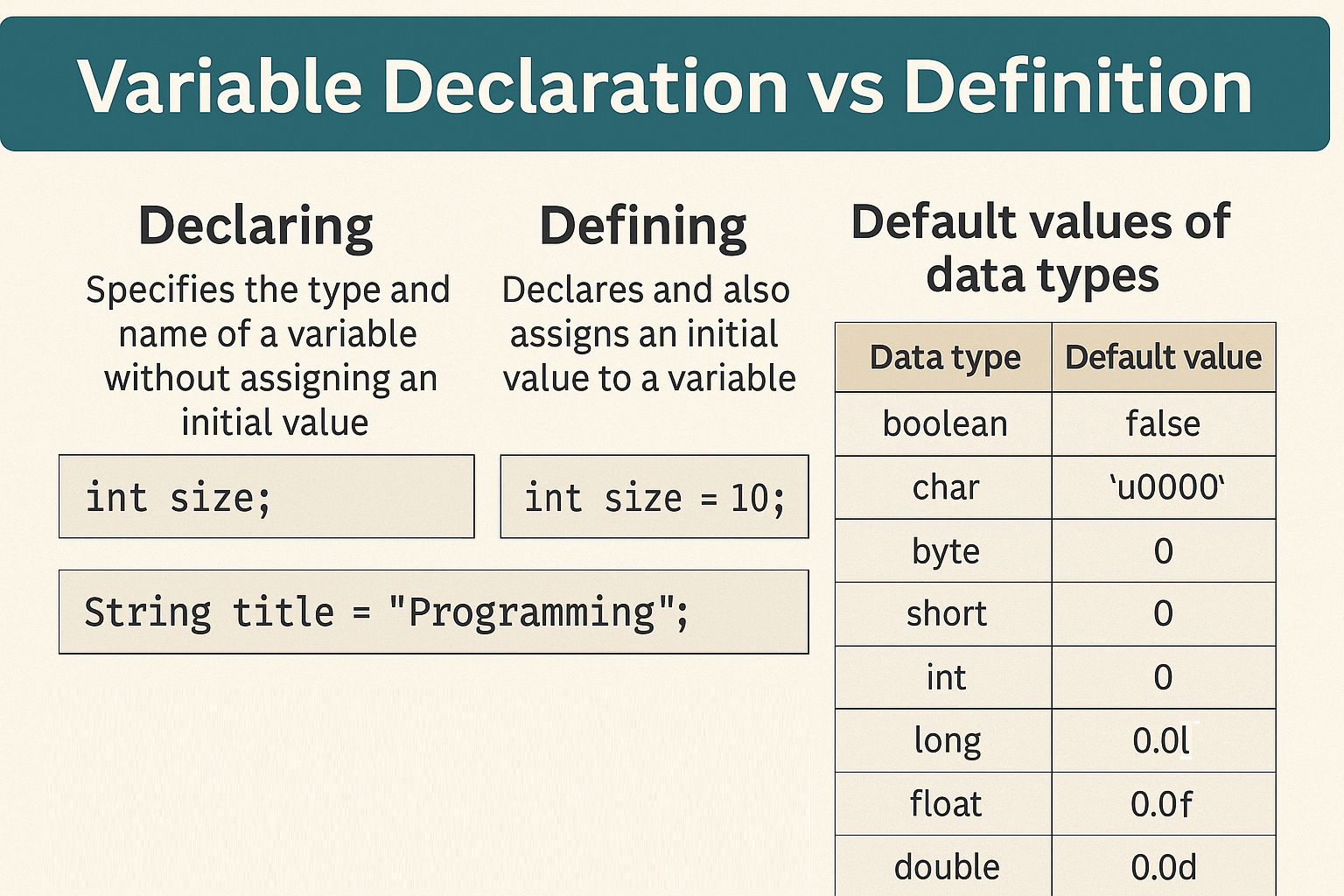A common source of confusion for Java beginners is understanding the difference between declaring and defining a variable. Though subtle, this difference impacts memory allocation, default values, and when a variable becomes usable in your code.
1️⃣ What Is Variable Declaration?
Variable declaration is when you inform the compiler about the data type and name of a variable without assigning a value.
int size; // declared, but not initialized
String title; // declared, but not initialized
Key Characteristics:
- No memory is allocated yet for storing actual data (in local scope).
- Compiler just recognizes the type and name.
- Can’t use the variable unless it’s later initialized (especially locals).
2️⃣ What Is Variable Definition?
Variable definition combines declaration and initialization—meaning the variable is created and assigned a value.
int size = 10;
String title = "Programming without the vowels";
Key Characteristics:
- Memory is allocated for the variable.
- Variable is immediately usable.
- Initialization can be literal, computed, or constructor-based.
🧪 Local vs Instance Variable Behavior
| Scope | Declared Without Init | Can You Use It? | Default Value |
|---|---|---|---|
| Local (inside method) | Yes | ❌ Compile Error | N/A |
| Instance (field of class) | Yes | ✅ Allowed | Yes (see below) |
🔁 Default Values of Instance Variables
| Data Type | Default Value |
|---|---|
boolean |
false |
char |
'\u0000' (ASCII-0) |
byte |
0 |
short |
0 |
int |
0 |
long |
0L |
float |
0.0f |
double |
0.0d |
String / Objects |
null |
public class Demo {
int id; // default: 0
String name; // default: null
void print() {
System.out.println(id); // prints 0
System.out.println(name); // prints null
}
}
Local variables must be explicitly initialized before use, or the code won’t compile.
🔄 Real-World Analogy
Declaring a variable is like reserving a room at a hotel—you tell them the room type and your name.
Defining it is like checking in—you’re actually occupying the room and using its resources.
🧠 Interview Relevance
| Question | Sample Answer |
|---|---|
| Can you use a declared but uninitialized local variable? | No, it will throw a compile-time error. |
What’s the default value of an object field (e.g., String name;) if not initialized? |
null |
| What’s the difference between static and instance variable defaults? | Both get default values, but static fields belong to the class, not the instance. |
✅ Summary
- Declaration = type + name only.
- Definition = declaration + initialization.
- Local variables must be initialized before use.
- Instance variables get default values automatically.
- Proper initialization prevents runtime errors and improves readability.
Pro Tip: Prefer definition over standalone declarations to reduce null checks and uninitialized logic paths.
